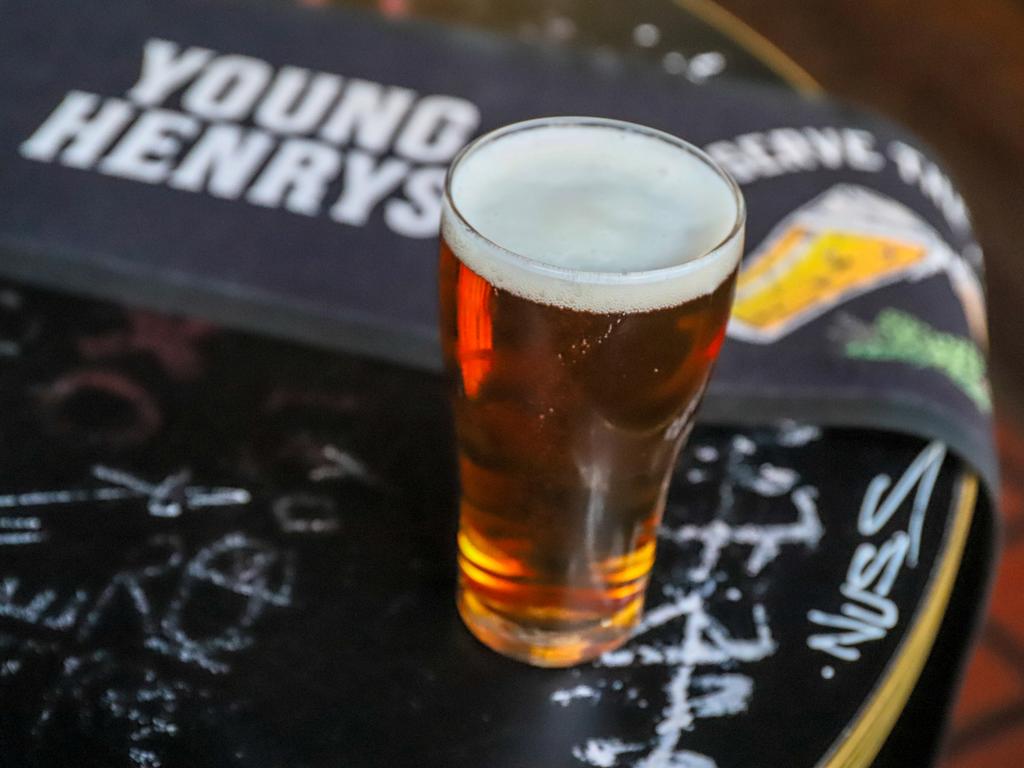The not-so-obvious things ordinary Aussies can do to combat climate change
We know we should avoid single-use plastics and take public transport more. But there is more you can do to play your role.
When it comes to things we can do to help combat climate change, most of us are aware of the obvious things like not using single-use plastics and taking public transport where possible.
So what else is there?
People can look for companies that are doing innovative things like capturing carbon.
Newtown brewery Young Henrys is one such company, using algae to capture the carbon emitted through the brewing process.
The algae absorbs the same amount of carbon as a hectare of bushland, making the brewery’s carbon footprint positive.
You could also reduce their meat consumption, food waste, air travel and support companies that are not fossil and carbon based.
With the insights of scientists and drawing on extensive research, news.com.au – in special partnership with Judith Neilson Institute for Journalism and Ideas and the Science Media Research Centre – is exploring how Australia will change of part of Time Is Now series.
Peter Ralph, Professor of Marine Biology at the University of Technology Sydney (UTS), says Australians need to buy sustainable products.
“Buying beer that is capturing CO2, buying cooking oil that’s sustainably made from algae, and there’s a company that’s making plasticware out of seaweed,” he says.
“That’s three products people can do today.”
Dr Ralph says consumers need to drive demand for such products so industry responds.
“What we need is consumers who are motivated and aware, and industry that’s willing and we can start having industry produce products that are removing CO2 from the atmosphere,” he says.
He says Millennials are willing to pay 10 to 20 per cent more for a sustainable product.
“Some of these products are going to be a bit more expensive,” he says.
“Provided Millennials and sustainably aware consumers are willing to pay, industry will make those products for them. This is where this is a consumer led solution.
“This is how we can decarbonise our society. These are new markets to move into.”
RELATED: What we face losing under climate change
RELATED: What 2C of warming actually looks like

Dr Ralph says it’s not about adapting to warmer temperatures, it’s about doing things to avoid them in the first place.
“I’d prefer to get our climate cooler and less unsustainable - that’s the future I want - and that means people are going to have to make decision to actively choose products that are carbon negative, not carbon positive,” he said.
Coral reef expert Associate Professor David Suggett says people needed to realise climate change is happening.
“Social buy-in is essential which means accepting that climate change is happening - and quickly - and being willing to act, even at small local scales,” he says.
“We quite often bury our head in the sand under the pretence that actions of one person does not make a difference.
“In order to tackle climate change, nations worldwide will need governments that can implement drastic solutions, which means we need leaders to do this and also for the public to support them into office.”
Dr Sophie Webber, human geographer at UTS, says the most important things Australians need to do to address climate change is become political actors about climate change.
“This means making all the consumptions that you typically think of – flying less, driving less, eating a more earth-friendly diet – but also joining groups, making coalitions, and voting along climate lines,” she says.
Professor Elizabeth Mossop, landscape architect at UTS, says leadership needs to come from communities.
“Communities are the people most invested in this,” she says.
“It’s obvious some things we used to do are not going to be viable into the future.
“It just seems criminally irresponsible that we are not all investing in this.”
Professor Dale Dominey-Howes, Director of the Asia-Pacific Natural Hazards and Disaster Risk Research Group at the University of Sydney, says every single person can make a difference
“From taking shorter showers, showering with a bucket and throwing the water on the garden, to walking to school or work once or twice a week rather than using the car or public transport,” he says.
“And from turning off lights when you leave a room to lifting the temperature set for the aircon by a degree or two higher, there are so many simple small actions we can all take.
“Plant and grow a few home grown veggies, insist on buying loose products at the super markets - not those wrapped in plastic - and if you can, invest in solar panels and buy an electric car.
EASY THINGS YOU CAN DO
• Reduce meat consumption
• Invest in companies that use renewable energy that aren’t fossil-carbon based
• Drink beer from breweries that captures CO2
• Reduce unnecessary air travel
• Reduce food waste
• Keep the air-conditioner on 24C
• Take public transport
• Avoid single-use plastics
• Start a home compost




